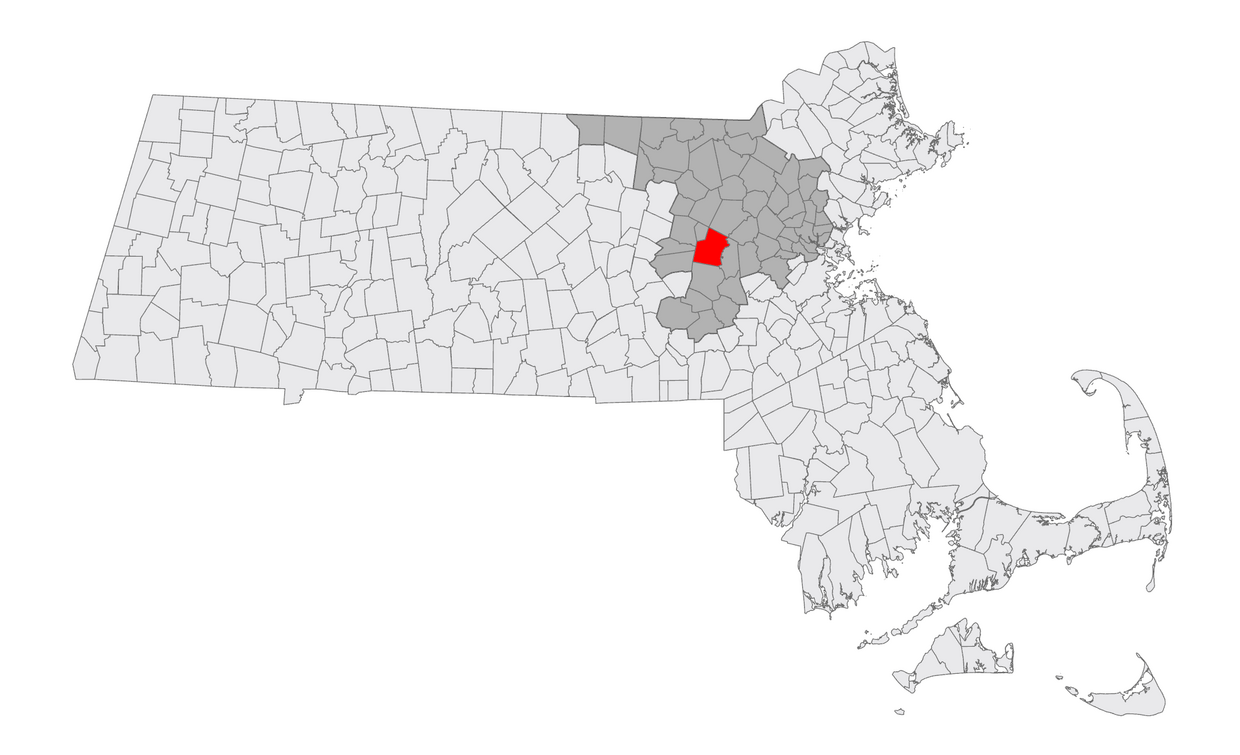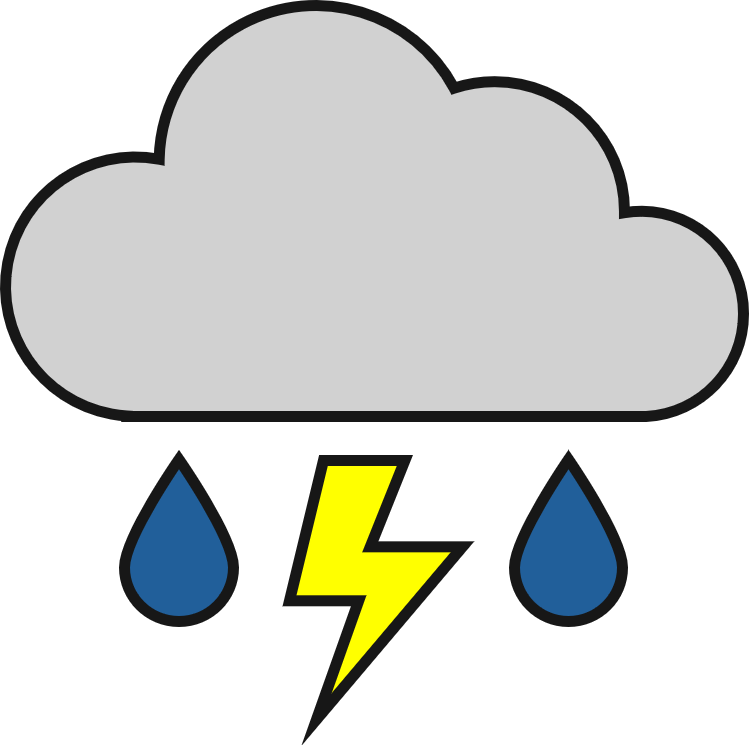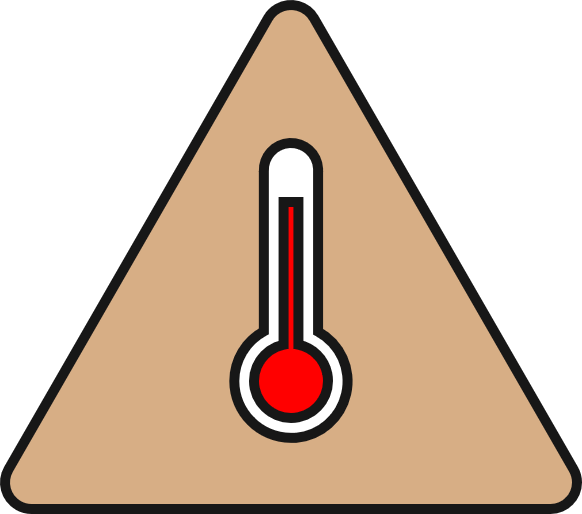Sudbury Overview
Sudbury is a town in Middlesex County, Massachusetts, in the upper Northeastern part of the state. They have a population of 17,094 people and an area of 24.3 square miles. Climate hazards present in Sudbury include heavy flooding, intense and frequent storms, varying extreme temperature, downed trees, and damaged infrastructure.
Sudbury's MVP 2.0 Core Team
The MVP 2.0 Core team is a group of municipal staff and Community Liaisons who work together to identify local climate resilience priorities and implement a project that supports those priorities.
Sudbury's Community Liaisons include:
- Parents of young children
- Residents who are new to town
- Students
- A teacher
- A member of the Sustainable Sudbury organization
- An individual with connections to indigenous Peoples
Sudbury's Core Team includes municipal representation from:
- Department of Community & Economic Development
- Department of Planning
- Department of Health
- Department of Facilities
- Council on Aging
- Conservation Commission
Sudbury's Community Resilience Priorities
Community resilience priorities are practical actions created during the MVP 2.0 Planning Grant process. They were shaped through community input, thoughtful discussion about changing local needs, and feedback from Environmental Justice groups and other community members.
Sudbury, in partnership with their Core Team, identified the following priorities through the MVP 2.0 process.
| Priorities | Potential Actions | ||
|---|---|---|---|
| Priority 1: Enhance food system resilience by improving access to diverse food sources, supporting local food production, and addressing climate-related disruptions to food availability. | Potential Actions: Workshops on climate-resilient gardening & shifts in food production, explore alternative food distribution sites to reduce reliance on the car-dependent rt 20 grocery stores. | ||
| Priority 2: Reduce flood risk and improve water quality through regional watershed management, enhanced stormwater and water conservation policies, and incentive programs. | Potential Actions: Develop regional strategies, establish stormwater utility/enterprise fund or surcharge for new construction; subsidized programs to streamline permitting & provide backflow preventers in flood-prone areas. | ||
| Priority 3: Strengthen community connections and improve communication by leveraging existing community networks, trusted messengers, and events to share resources and information. Focus on outreach to priority populations such as older adults and low-income renters. | Potential Actions: To be determined. | ||
| Priority 4: Protect critical transportation routes to schools and essential workplaces through targeted flood resilience projects, prioritizing improved infrastructure along flood-prone corridors to ensure all-weather access for educators, care workers, and students. | Potential Actions: Upgrade culverts, implementing green infrastructure solutions, and regularly maintaining existing drainage systems. | ||
| Priority 5: Expand and maintain a safe, all-season active transportation network that connects neighborhoods, train stations, and recreational paths, promoting awareness of routes and resources to reduce reliance on personal vehicles. | Potential Actions: To be determined. | ||
| Priority 6: Support residents in making climate-resilient and energy-efficient improvements to their homes, providing resources and assistance in navigating home improvements for flooding resilience, climate control, and energy efficiency. | Potential Actions: Develop a home retrofit program for flood & heat resilience, create financial assistance programs for climate-related home improvements, and provide information on flood insurance options. | ||
| Priority 7: Develop strategies with primary care providers, home health programs, and utility partners to reduce health risks for homebound individuals or those with electricity-dependent medical devices. | Potential Actions: To be determined. | ||
| Priority 8: Leverage existing community networks, like the schools and library, and trusted messengers, such as the Senior Center and Sudbury Housing Authority staff, to do targeted outreach to priority populations such as renters and older adults around climate emergencies and resilience resources. | Potential Actions: To be determined. | ||
| Priority 9: Incorporate climate-adaptive strategies into Sudbury's ongoing open space and recreation planning, enhancing flood management and ecosystem restoration objectives. | Potential Actions: Climate-resilience check list for the upcoming OSRP update, partnering with community organizations to organize residents around invasives management, trail clearing, etc. | ||
| Priority 10: Enhance community cooling and warming centers by ensuring they have reliable climate controlsand backup power and expanding programming and hours to serve older adults, young children, and other priority populations. | Potential Actions: Building splash pads, provide hot-weather programing at the libraries and senior center, partner with property managers with community rooms | ||
Sudbury's MVP 2.0 Seed Project: Training Residential Climate Resilience Coaches
Sudbury received funding to implement a Seed Project that addresses one or more of their climate resilience priorities. They trained a group of local residents to become Climate Resilience Coaches. These coaches visit homes in town to check for climate-related risks. They educate residents on how to identify these risks, provide actionable recommendations to protect their homes from climate change, and encourage awareness across the community about how to stay safe and prepared.
The activities of this project include:
- Recruiting local residents to become Climate Resilience Coaches.
- Hiring a climate resilience consultant to design and deliver a training program for the Coaches.
- Training the Coaches to use publicly available data (e.g., FEMA flood maps, local GIS tools) to identify risks.
- Providing the Coaches with a Climate Resilience Assessment Checklist to guide their home visits.
- Training the Coaches on how to produce concise reports for homeowners, based on their findings.
- Organizing community workshops to introduce the program and recruit homeowners for home visits.
- Collecting feedback from homeowners and the Coaches to assess the program’s success.
Sudbury's Action Grant Projects
The MVP Action Grant provides funding to communities that want to take important steps to prepare for climate change, such as dealing with extreme weather, flooding, rising sea levels, and extreme heat.
Locally Grown Sudbury (FY25)
Locally Grown Sudbury is a project to improve the climate resilience, food security, and health equity of Sudbury's residents. This project promotes eating locally grown foods by hosting two (2) Sudbury Grown Fairs and developing a Farmers Market and Food Security Action Plan to strategize holding similar events consistently in the future. To ensure that these nutritious foods are as accessible as possible, this project also aims to provide coupons to climate vulnerable households so that products sold at the fairs may be acquired at a free or reduced rate. Additionally, this project proposes to implement a Climate Resilient Food Security Engagement Series in order to support local farms, educate the public on the overlap of climate change and food access, and provide tools and resources for residents to become more climate resilient and sustainable in their homes.










